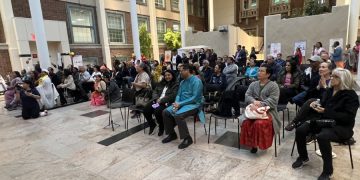Stabroek News in Guyana ran an editorial (Feb 1) on businesses that thrived in British Guiana and a few years after independence was granted in 1966. and subsequently went out of existence late 1970s and after.The commentary is nostalgic, bringing back fond memories of outstanding businesses and life in the capital city and even in outlying areas. Life was so good in Guyana till government in the early 1970s started to ruin the private sector, engine of creativity, ingenuity, and growth, banning basic goods and making others very scarce, and nationalizing all of the large corporations. Government controlled all imports and exports and restricted foreign exchange to purchase imports — the private sector was prohibited from importing goods and denied access to foreign exchange to conduct business abroad.Guyanese I have spoken with in the diaspora and in Guyana recall the named companies very well. Those companies were very popular among consumers. They provided very important and professional services to the nation (mostly in the greater Georgetown area). Also, dwellers from far away locations on the Corentyne, West Coast, and Essequibo would journey to town to conduct business with them. I remember growing up in Port Mourant my father bringing home tasty Brown Betty chicken. No current chicken outlets anywhere in Guyana or the diaspora can match the delicious sumptuous taste of Brown Betty chicken. Several of the companies mentioned that were in G’town also had a branch in New Amsterdam. Their business were also affected by government’s intervention (introduction of socialism) in the invisible hand of the economy and blackouts. In addition to the several reasons provided why most of these companies became defunct, you left out an important one – the introduction of socialism (communism) in Guyana’s economy, nationalization, and eventual absorption of businesses by another government entity. Nationalization and control of trade destroyed companies like Brown Betty and more. Some of the privately businesses were ‘forcibly’ closed — denied goods from the state owned wholesaler that became the importer of almost all goods post 1975. The External Trade Bureau (ETB) was responsible for imports and exports. Private companies that didn’t tow the line were victimized — denied of essential items or foreign currency and eventually driven out of business. While the 1973 oil crisis did severely impact life in Guyana, the socialist policy of the government worsened conditions as Guyana as denied key foreign aid and loans from western countries and lending institutions especially post-1980 when Guyana aligned itself with the Soviet bloc countries in opposition to American strategic interests. Shortage of foreign currency meant Guyana could not purchase oil (kerosene, diesel, gasoline) and gas which were imported. The shortage of diesel was one factor that led to blackouts.The editorial did mention that the regular (rolling) blackout that happened mid-1977 affected businesses. Electricity was a major problem throughout Guyana. The editorial stated blackout was a problem in Georgetown from mid-1977. In Port Mourant and most of the Corentyne, where Indians resided, there was an almost permanent state of blackout ever since government generated electricity came on stream around mid-1974. Prior to that, we had privately generated electricity from neighborhood diesel generators for a few hours into the evening ( 6 PM till 9 PM). We studied with lamps when electricity was unavailable. During government control and sale of power, most if not all of the Corentyne as well as New Amsterdam experienced long bouts of blackout – at times for days, weeks, and months. We were quite lucky if we got a few hours of electricity daily between 1974 and the 1990s. My aunt’s *Bethlyn) business where I helped out in the afternoons in Ankerville relied on kerosene hand lamps. Bethyln’s, like Uncle Reggie’s, Uncle Hindoo’s, Uncle Chunelall’s and so many others on the Corentyne gradually shrank with banned goods and went dysfunctional because of scarcity of goods and off course death of the proprietors.
- Latest
- Trending


































































